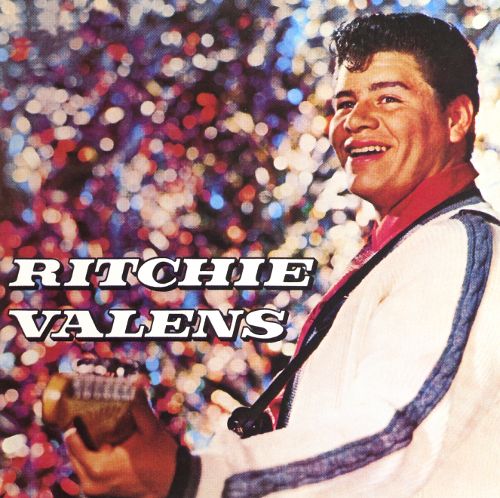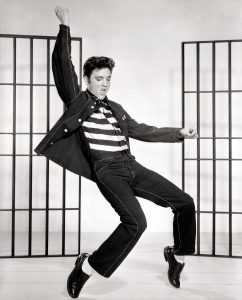It is the late 1950’s in southern California, and a young superstar named Ritchie Valens, whether he knows it or not, is about to change the culture of America forever. In a matter of eight months, the Hispanic student at San Fernando High School just became one of the biggest celebrity musicians of the day.1 After dropping out of school in order to record and tour full time, Richard Valenzuela was making phenomenal Rock N’ Roll music, both on stage and in the studio. While America quickly became obsessed with the undeniably talented teen, nothing could prepare them for his next release.
From the beginning, the odds were against young Richard. He was merely sixteen, and, as a young Latino, there were few opportunities for someone like him in the American mainstream music industry, let alone in Rock ’n Roll. He saw proof of this fact early in his career, facing prejudice and discrimination at every turn. He was even forced to change his name to Ritchie Valens in order to make it easier for his fans to pronounce—a compromise that gave way to controversy and anger from his family.2 Ritchie realized that, even though he was opposed to the changing of his name, it would be a smart move for him as a musician. But even after his family name was taken from him, he refused to let go of his heritage. In fact, it seemed that he tightened his grip.
Ritchie wanted to do something to pay tribute to his Latino culture. With the assistance of Bob Keane of Del-Fi Records, he decided he would combine the two worlds that he was now so heavily a part of, by turning the Spanish tune “La Bamba” into an upbeat rock song. Only knowing English, Ritchie had to learn the lyrics of the traditional Mexican folk song phonetically. After countless takes in the studio, he recorded the song on a two-track record with a second soon-to-be hit Oh, Donna.3
Ritchie released the track and promptly shook up America. Most people had no idea what the song was about, but, for one of the first times in modern music history, they didn’t care. The charismatic rhythm of the song combined with Ritchie’s unique voice; it was impossible to dislike it, and the song spread like wildfire, taking his career to new heights.
Seeing Ritchie perform was a spectacle only few Americans were graced with. His energy and impeccable guitar skills would engage the thousands of audience members from start to finish.4 While the crowd was swooning over every single song, there was nothing like that epic guitar riff that carries the tune of La Bamba.3 As soon as Ritchie’s guitar pick hit his strings, the fans simply could not contain themselves.

Unfortunately, Richard Valenzuela’s career was ended even quicker than it begun. Soon after his explosive rise to fame was sparked, and before he could finish his tour, Ritchie Valens was killed in a plane crash along with fellow artists Buddy Holly and The Big Bopper J.P. Richardson.6 The tragedy triggered nation-wide shock, and the day became known by many as “The Day The Music Died.”7
Although his life was ended much too early, perhaps it was this terrible fate that immortalized him in music history. His music and the rest of Valens’ amazing life inspired the film La Bamba, a timeless and classic film. Ritchie’s brave move in the release of “La bamba” inspired and enabled many other Hispanic artists to begin to make their way into the spotlight, making it much more than just a great song. We see the repercussions still today, through modern Latin Rock bands and all the sub-genres surrounding them, and will without a doubt continue to experience the fruits of the song for decades to come. Needless to say, American music and culture would not be the same without Richard Valenzuela’s audacious contributions.
- Encyclopedia of World Biography, 2004, s.v. “Ritchie Valens.” ↵
- Salem Press Biographical Encyclopedia, January 2017, s.v. “Ritchie Valens,” by Scot M. Guenter. ↵
- “‘La Bamba’ one of the 100 most important American musical works of the 20th century,” Broadcast Transcript. Weekend All Things Considered, NPR, July 15, 2000. ↵
- St. James Encyclopedia of Popular Culture, 2nd ed. “Valens, Ritchie (1941–1959),” Candida Taylor. ↵
- “‘La Bamba’ one of the 100 most important American musical works of the 20th century,” Broadcast Transcript. Weekend All Things Considered, NPR, July 15, 2000. ↵
- Robert Wright, “The Day The Music Died,” Aviation Safety, July 1, 2015. ↵
- “What Went Wrong On The Day Music Died?” Interview by Robert Siegel, Melissa Block, All Things Considered, NPR, February 3, 2009. ↵



163 comments
Roman Olivera
This is a brief but informative article on the rise of Ritchie Valens and the song” La Bamba” which had a sound like nothing heard before it. I grew up in the San Fernando Valley not far from were Ritchie Valens grew up and is still remembered as rock and roll legend as well as an inspiration to many Mexican Americans growing up that come from humble beginnings a dream of way out. There were many hardships that he hard to deal with to include the racial tension and division at the time of his rise in the Los Angeles area. His music brought people of all races together because of not only its unique sound but the messages that he sent though his music and actions as a humble and personable young star. Another song that was mentioned in the article was “Oh Donna,” which was a tribute to his high school love. This was also a big deal because his girlfriend was a white american girl. This was not socially accepted at this time and was another thing that he tried to abolish through his music. It is great to shed light and he lesser known musicians and the great impact their music and lives had on people. In Richtie Valens’ case, he will always be the Mexican American Ricardo Valenzuela, who inspired generations of young people to strive for greater in their lives no matter how humble the beginnings are that you come from, or what road blocks stand in you way to get there. His passing at such a young age was truly “The Day The Music Died!”
Kacey Diaz
This story is so inspired to anyone and especially for anyone who comes from a Hispanic or Latino background. I personally grew up in a Hispanic household and would hear his song La Bamba play every now and then but I never knew the story of his rise to fame and his tragic end. Reading this brought a sense of pride to me because this wonderful musician, who was not much younger than I am now, went against the odds in the music industry and did what he loved to do.
William Rittenhouse
This is such a cool story and inspiring coming from his background. I only ever knew of La Bamba, but I never knew about his rise to fame. I hope this inspires more people like Ricky to achieve their potential. It is such a shame such a talented musician had to die so early and tragically. Also such a cool article relating to the Hispanic culture. I’m sure Latino’s can be very proud of this story as well as strengthen their roots. I can’t say this from experience because I have no Spanish descent. This article made me proud being an American, a place where people can overcome hardships and diversity and live out their dreams.
Micaela Cruz
What I find so appealing about the hit song “La Bamba” is how the upbeat rhythm and tune captured the attention of so many people. Ritchie Valens faced obstacles through his short music career but he did not let that hinder his ability to produce a timeless classic that united those of different backgrounds. This article was something I very much enjoyed reading and to be able to hear the actual song through the use of media was an added bonus.
Carlos Vazquez
La Bamba is one of the most iconic songs from the 20th century. Although Richie Valens was not able to have a longer career due to his unfortunate death, he was able to become an inspiration for Hispanic musicians. This article was really well written and informative, I really enjoyed reading this and learning more about Richie Valens and his music.
Belia Camarena
I love the song La Bamba, and every time I hear it, it makes me incredibly happy. Thats the reason I was so happy to see that someone had written an article about it. I also really like that the author included a video in their article. However, I thought it was sad that Ritchie Valens felt a need to change his name in order to gain fame. By stripping himself of his name, he was in a way stripping his identity of his Latin roots.
Yahaira Martinez
Reading this article made me so incredibly happy because of the fact that the knowledge of the Latino community is beginning to spread and more and more people are continuously speaking or remembering about this amazing movement. Ritchie Valens was one of the first to begin it and though his career was short, his impact will forever leave and impact in this world.
Noah Laing
This article does a great job of telling the inspiring story of Ritchie Valens and how he found success. I respect Valens and his decision to drop out of school and pursue his dream in music, because the amount of self confidence to make a major life decision like that isn’t something that is rewarded with success often.
Cristina Cabello
This is a really good story about Ritchie Valens. This proves to show that we really do not need an education to become something in life. I am joking but I am really glad that his career worked out for him. It is really brave to drop school and to pursue your dream. Not many people can say that things will be able to work out. I find it really tragic the Ritchie passed. But you did really good on this article.
Jason Garcia
I grew up listening to folk songs of the Hispanic culture, but I only knew La Bamba the way, Ritchie Valens performed it. My Dad loves the movie and my brothers and I know every song on it. Growing up with something doesn’t really let you see the value in it but as I grew older I realized the influence that he had on the music and Mexican- American culture and after reading this, I am surprised by the amount of talent and influence he had. He changed what Rock was and he changed what people thought about Mexican-Americans.